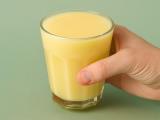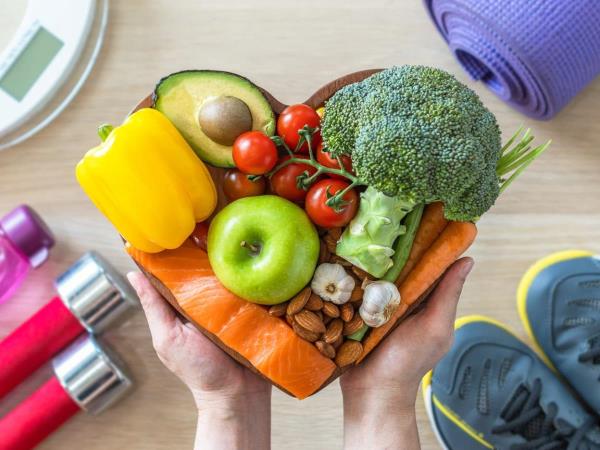- Vibrational exercise platforms – when the body shakes, health grows?
If a decade ago you drove past a fitness center and saw someone shaking on a metal platform with a serious expression, you probably thought something of your own. Perhaps even that it was some passing fad without real effect. But nowadays, vibrational exercise platforms – these devices on which you stand while vibrations shake your body – are increasingly valued even in professional circles.
The idea is simple: you stand on a vibrating plate, and your body receives an additional stimulus. These vibrations are not just any vibrations – they range from 15 to 60 Hz, which means 15 to 60 vibrations per second. A study from the Journal of Bone and Mineral Research showed that regular use of such devices increases bone density in menopausal women, resulting in healthier and less fragile bones.
Muscles also benefit from this. In a 2017 study published in the International Journal of Sports Science, participants who used a vibrating plate for 10 minutes a day improved their muscle strength by as much as 12% in one month. The exact cause of this is not clear, but researchers believe that vibrations trigger greater activation of muscle fibers.
One could say that this is a modern version of our old rural cobblestones – when muscles were already strained by walking on a shaking bridge over a stream or working with a pickaxe on a slippery slope.
- Barefoot running – back to nature, forward to health
Running without shoes? It sounds like a recipe for bloody soles, but wait. Before running shoes were invented, our ancestors ran barefoot for thousands of years – on grass, sand, rocks. And lo and behold, most of them did not have knee or back problems.
Today's sneakers force us to land on the heel, causing the so-called impact wave – a shock that is transmitted through the ankle, knee, hip, and spine. A 2010 Harvard University study led by renowned biomechanist Dr. Daniel Lieberman showed that barefoot runners land more naturally – on the front or outer edge of the foot – relieving joints.
And an interesting fact: a study published in the British Journal of Sports Medicine showed that runners who occasionally train barefoot report fewer injuries (up to 30% fewer), mainly due to improved balance and strengthening of foot muscles.
Of course, barefoot running is not for everyone and certainly not on urban asphalt. Start gradually – first on grass, then on firmer but clean surfaces.
- Tongue scraping – more than just fresh breath
You have probably seen that rough surface on the back of a toothbrush and wondered what it is for. Maybe you thought it was a trick by manufacturers to sell you more. But in reality, it is something our grandmothers knew about – that the tongue is a breeding ground for bacteria that cause bad breath and diseases.
Food residues, dead cells, and bacteria accumulate on the tongue – especially anaerobic bacteria, which thrive in an oxygen-free environment and produce sulfur compounds. These are responsible for the unpleasant odor from the mouth. A study published in the Journal of Periodontology found that 80 to 90% of cases of bad breath originate from the tongue.
Regularly scraping the tongue – in the morning and evening – can reduce bacterial load in the mouth, reduce the risk of cavities, and even prevent colds, as many diseases start in the oral cavity. In Ayurveda (ancient Indian medical science), this has been practiced for millennia – they use metal tongue scrapers, which are now available again even here. If you don't have one, you can use the back of a brush – better something than nothing.
- Fecal transplant – health from ... um ... the rear?
I admit, this sounds gross. But if you thought it was a joke, you are mistaken. In medicine, there is a procedure called fecal transplant, scientifically known as fecal bacteriotherapy. It involves introducing a sample of healthy stool into a patient's intestines – usually inside a capsule, but it can also be done through a tube through the nose or rectally.
The goal? Repopulating the intestines with beneficial bacteria. Our intestines contain as many as 100 trillion microorganisms, which is 10 times more than all cells in the body. When we disrupt this balance – due to antibiotics, stress, poor diet – problems arise, from chronic diarrhea to metabolic diseases.
Studies from Australia and the USA show that fecal transplants cure up to 85% of Clostridium difficile infections, a resilient bacterium causing severe digestive problems. Even more surprisingly, researchers from the University of Adelaide have also discovered improved symptoms in type 2 diabetes patients and even in Parkinson's disease – indicating that gut flora also influences the brain.
- Parasites – unexpected allies?
When we hear the word parasite, we first think of worms, tapeworms, and other nuisances that we want to eliminate from the body. But here is an interesting finding: our ancestors did not see certain intestinal parasites as evil, but as part of a natural balance. And science agrees with them.
In recent decades, researchers have noticed an increase in allergies, asthma, autoimmune diseases (such as Crohn's disease and multiple sclerosis) in countries with the highest hygiene standards and where parasites are almost non-existent. Simplified – our bodies no longer have anyone to train with, so they begin to attack themselves.
The so-called hygiene hypothesis suggests that moderate infections with parasites can even be beneficial, as they regulate the immune system. In a 2005 study published in the Journal of Allergy and Clinical Immunology, researchers from Uganda showed that children infected with worms have fewer allergies than those regularly dewormed.
Of course, this does not mean that you should intentionally infect yourself, but it shows that nature may know more than we think.
Sometimes the wisdom of old times, which seems strange or even foolish to us today, is actually more advanced than we would think. From vibrations that strengthen muscles and bones, to barefoot walking, which improves body biomechanics, to tongue cleaning and rediscovering the healthy role of bacteria – all of this shows us that seemingly bizarre practices can be very effective.
Folk medicine teaches us that not everything should be measured by modern standards. What seems funny today may be your doctor's recommendation tomorrow. And if we are honest – something similar has already happened with clay, vinegar, ginger, and even leeches.









 Would you like to be informed about news on the website?
Would you like to be informed about news on the website?

